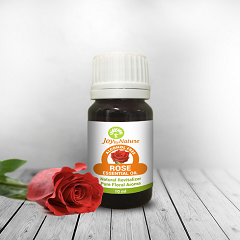7 Tips For Choosing The Right Aromatherapy Scent That Suits Your Home
 0
0
 2015-12-22
2015-12-22

Image Source: Zentofitness
Aromatherapy in itself is an age-old science that has been used for thousands of years, but actual usage and benefits have remained with only a few. In the current day to day life with so much stress around, there arises an instantaneous need to maintain a healthy and peaceful mind. Aromatherapy can surely help with that in the form of candles,incense,pure essential oils, diffuser oils, massage oils, roll ons. But to get the right fragrance at the right time that would suit the mood and home, one should follow certain tips/steps for evaluating the best.
- Knowing the mood
It is really essential that one knows the mood and understands what would fit best in that scenario. For example, floral smells such as rose, jasmine seem romantic for bedrooms, spices give a seductive feel, lavender, chamomile give a calming and relaxing feel, Citruses and Clary are fit for the bathroom usage and whenever it is a gathering of people, rose geranium would give a hint of green like that of a cleanser post meal. If a person keeps different scenarios in mind, nothing can go wrong and aromatherapy would do wonders.
- Can it be used for medicinal purposes?
Here is a list of different essential oils that can be used in different medical situations-
- Ginger- It helps in stimulating appetite and getting rid of headache.
- Tea tree- It helps in treating bacterial, fungal, viral infections and strengthens the immune system.
- Peppermint- It has the power to invigorate a person when in stress and avoid nausea and vomiting during labor.
- Neroli oil- It helps in lowering blood pressure and pre-procedure anxiety.
- Lavender and rose- Since both are floral smells, their laxative and calming effect can help pregnant women.
- Does it interfere with the home’s atmosphere?
There are many essential oils that might not mix with the atmosphere and even with other essential oils. That might spoil the ambience altogether and can even be harmful in a few scenarios. Given below is a list of oils to be avoided because they can be poisonous for human skin and usage-
- Bitter Almond
- Calamous
- Rue
- Mustard
- Horseradish
- Mugwort
- Savin
- Tansy
- Southern wood
- Yellow camphor
- Knowing the difference in smells for different areas of home
If you know the basics of aromatherapy, then you would be surely aware of the fact that different spaces need different types of smells and only a few can be used in all spaces. For example, if the children’s room smells like eucalyptus, it creates an anti-fungal and anti-bacterial aura, citruses seem right for pungent areas such as near kitchen sink, bathroom, and florals seem the right kind for bedrooms.
- Which scent is good for which purpose?
Not all smells would fulfill a specific purpose. So using the appropriate scent for the right purpose is the key to effective aromatherapy. If at all there is confusion and ambiguity at the last moment, chose citruses such as lemon, orange, grapefruit over any other smell as they create a smooth, fresh and clean environment and rarely anyone would not like them.
- Choosing the right quantity for the right purpose
It is a proven case that if the quantity of essential oil exceeds the required, it can even be detrimental and might not produce the intended effect. For different purposes, below is a list of how many drops to be used-
- Massage- 5 drops per tablespoon of base oil
- Bath- 8-10 drops
- Washing machine- 15-20 drops per load
- Body – 5-15 drops in base
- Is the scent safe for all?
There can be instances when a person is unable to tolerate a specific scent and can be allergic to it as well. In such scenarios, it is advisable to use absolutely natural essential oils and not mix these with other synthetic compounds. Also, scents that bring back unhappy memories or those which make one lethargic aren’t intended to be that way. These should also be kept away. Most importantly, these oils can have negative effects on infants, so the babies must also be kept away from these oils.
Let’s simply hope that these tips would be highly helpful in an essential oil selection, the next time you think of one.
 Joybynature.com Team
Joybynature.com Team






